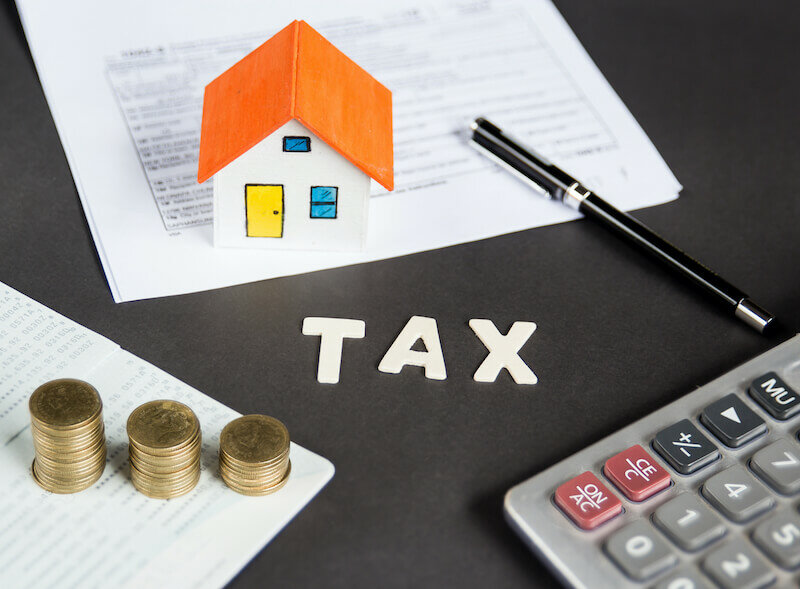Selling a house can be a significant financial decision, and understanding the tax implications is crucial to ensuring you make informed choices. In 2025, various factors can influence the taxes owed on the sale of a property, including the property’s value, the duration of ownership, your tax residency, and applicable deductions. This guide will provide a comprehensive overview of how to calculate taxes when selling your house, taking into account the latest tax regulations and laws.
Understanding Capital Gains Tax

When selling a house, the primary consideration is the capital gains tax (CGT). Capital gains tax is a tax on the profit realized from the sale of a property that has increased in value. The profit, or capital gain, is the difference between the property’s selling price and its original purchase price (or the adjusted cost basis). For instance, if you bought a house for $300,000 and sold it for $500,000, your capital gain would be $200,000.
The capital gains rate can vary depending on several factors, such as the duration of ownership and your income level. In most countries, long-term capital gains (on assets held for more than one year) are taxed at a lower rate than short-term gains (on assets held for less than a year). Understanding these tax rates is essential to calculate your tax liability accurately when selling your home.
Determining Tax Exemptions and Deductions
In many jurisdictions, tax laws provide exemptions or deductions to reduce the capital gains tax owed on the sale of a primary residence. One common exemption is the hausverkauf steuern exemption, which allows homeowners to exclude a portion of the capital gains from taxation if they meet specific criteria. For example, in the United States, a homeowner may exclude up to $250,000 of capital gains if filing singly or up to $500,000 if married and filing jointly, provided they have lived in the home as their primary residence for at least two of the past five years before the sale.
Deductions can also play a significant role in reducing the taxable capital gains. Costs associated with selling the property, such as real estate agent commissions, legal fees, and closing costs, can often be deducted from the capital gains, thereby lowering the taxable amount. Additionally, any home improvements made during ownership that add value to the property (e.g., kitchen renovations or roof replacements) can be added to the property’s cost basis, effectively reducing the gain.
Tax Residency and Its Impact on Property Sales

Your residency status can significantly affect the taxes you owe when selling your house. Tax residency rules vary by country, and it’s essential to understand how these rules apply to your situation. Generally, if you are a resident of a country, you will be subject to that country’s tax laws on your worldwide income, including capital gains from property sales. Non-residents may be subject to different rates or limited obligations.
For example, if you are a non-resident selling a property in a foreign country, you may be subject to withholding on the sale proceeds. In Switzerland, for instance, non-residents selling Swiss property are often subject to a withholding tax to ensure compliance with local obligations. Understanding the implications of your residency status and seeking advice from tax professionals can help you navigate these complexities.
Calculating Your Capital Gain

To calculate your capital gain, start with the sale price of your house and subtract the cost basis. The cost basis typically includes the original purchase price and any expenses related to buying and improving the property. Here is a simple formula to calculate your capital gain:
Capital Gain=Sale Price−(Purchase Price+Selling Expenses+Improvement Costs)\text{Capital Gain} = \text{Sale Price} – (\text{Purchase Price} + \text{Selling Expenses} + \text{Improvement Costs})Capital Gain=Sale Price−(Purchase Price+Selling Expenses+Improvement Costs)
For instance, suppose you bought a house for $300,000, spent $20,000 on improvements, and paid $30,000 in selling expenses. If you sell the house for $500,000, your capital gain would be:
Capital Gain=500,000−(300,000+30,000+20,000)=150,000\text{Capital Gain} = 500,000 – (300,000 + 30,000 + 20,000) = 150,000Capital Gain=500,000−(300,000+30,000+20,000)=150,000
This $150,000 gain would then be subject to capital gains tax based on the applicable tax rate and available exemptions.
Tax Rates for 2025
Capital gains tax rates can vary annually based on changes in tax laws and economic conditions. For 2025, long-term capital gains (for properties held longer than one year) may be taxed at different rates depending on your income level. In many countries, these rates can range from 0% for lower-income earners to 20% or more for higher-income earners. Short-term capital gains (for properties held less than a year) are typically taxed at regular income tax rates, which are often higher.
It’s advisable to check the specific rates applicable to your situation in your country of residence or where the property is located. Consulting a advisor can provide up-to-date information and tailored advice for your unique circumstances.
Impact of Additional Property Sales Taxes

In addition to capital gains tax, some jurisdictions impose additional property sales taxes. These taxes can be based on the sale price, the property’s location, or other factors. For instance, some cities or states may impose a transfer tax or stamp duty on the sale of real estate, which can vary significantly in percentage and fixed amounts. These additional taxes must be factored into the total cost of selling your house.
Planning Ahead to Minimize Tax Liability
Effective tax planning is essential when selling a house to minimize your liability. Here are some strategies to consider:
- Timing the Sale: Holding onto your property for more than a year can qualify you for long-term capital gains rates, which are generally lower than short-term rates. Timing the sale to coincide with a year when your income is lower can also reduce the applicable tax rate.
- Utilizing Deductions: Ensure you keep detailed records of all expenses related to buying, improving, and selling the property. These records will help maximize your deductions and minimize taxable capital gains.
- Primary Residence Exemption: If applicable, ensure you meet the criteria for primary residence exemptions. This might involve living in the property for a specified period before selling.
- Tax-Deferred Exchanges: Some countries offer the option of tax-deferred exchanges (like the 1031 exchange in the U.S.), allowing you to defer paying capital gains tax if you reinvest the proceeds into a similar property within a specific timeframe.
Conclusion
Calculating taxes when selling your house requires careful consideration of capital gains, applicable exemptions, residency, and additional property sales taxes. By understanding the tax implications, you can better plan for the financial impact of selling your home.






